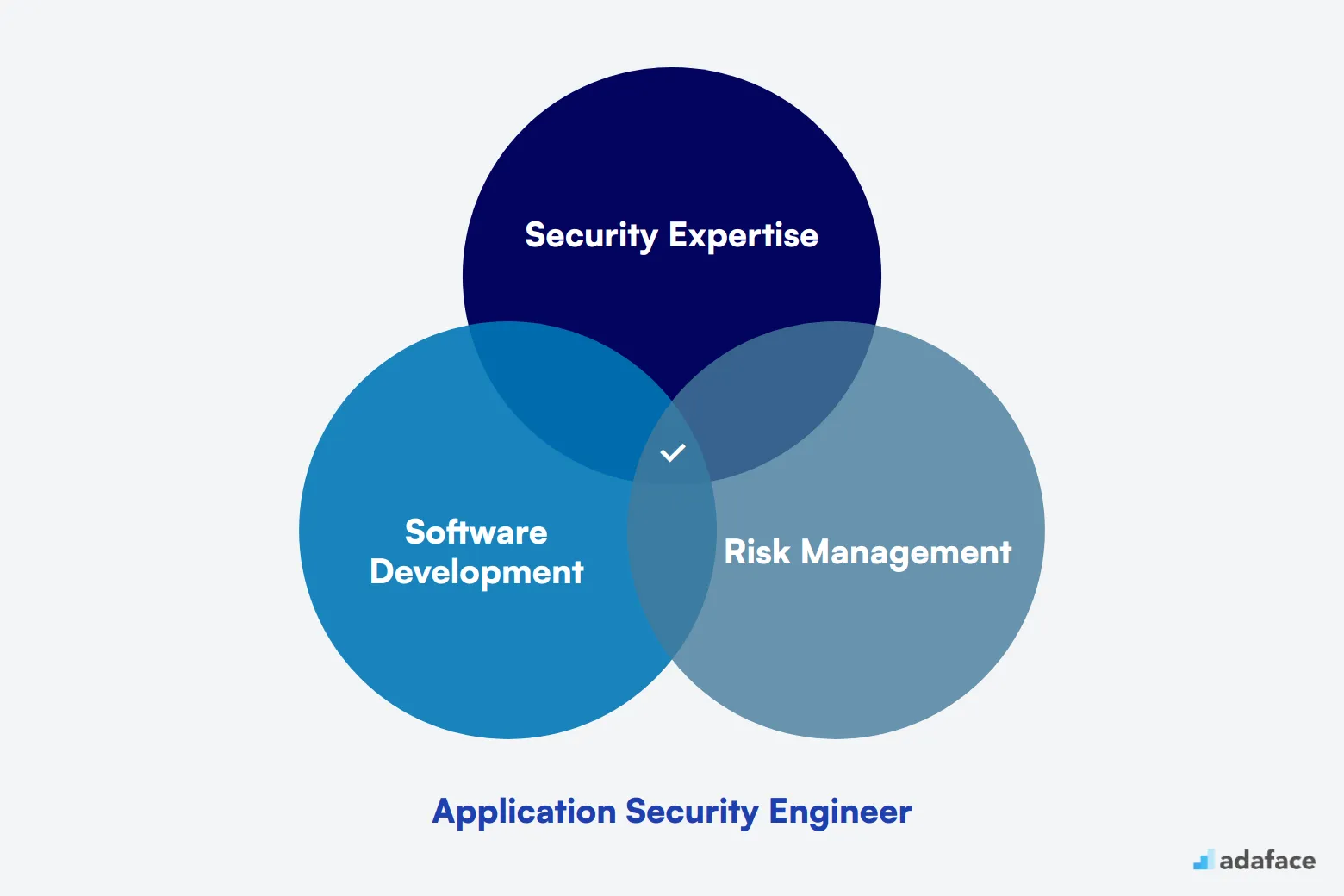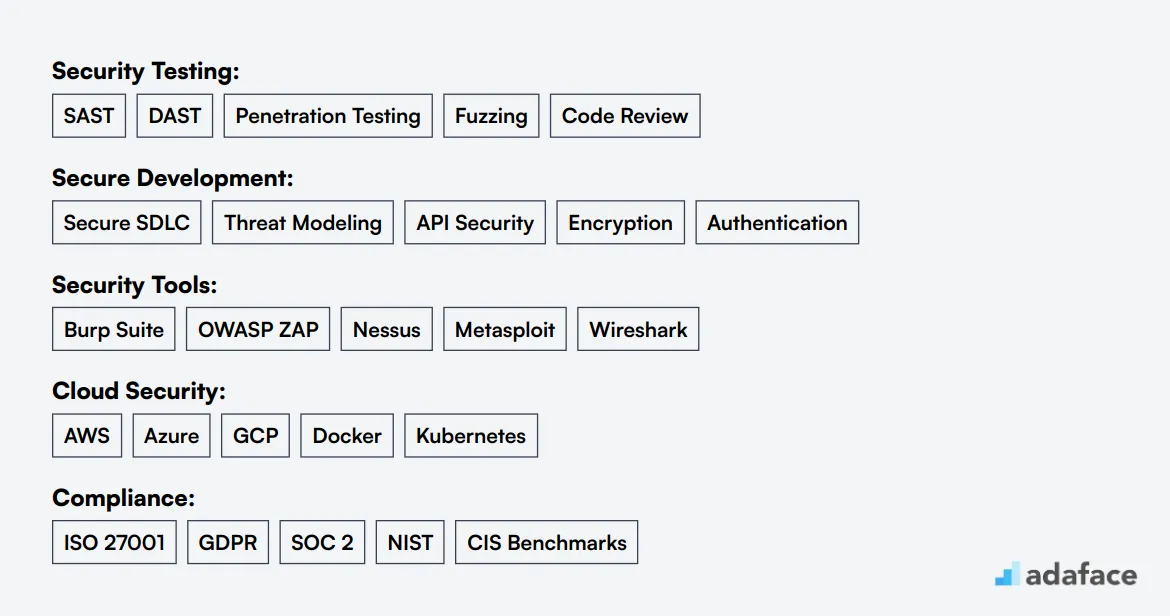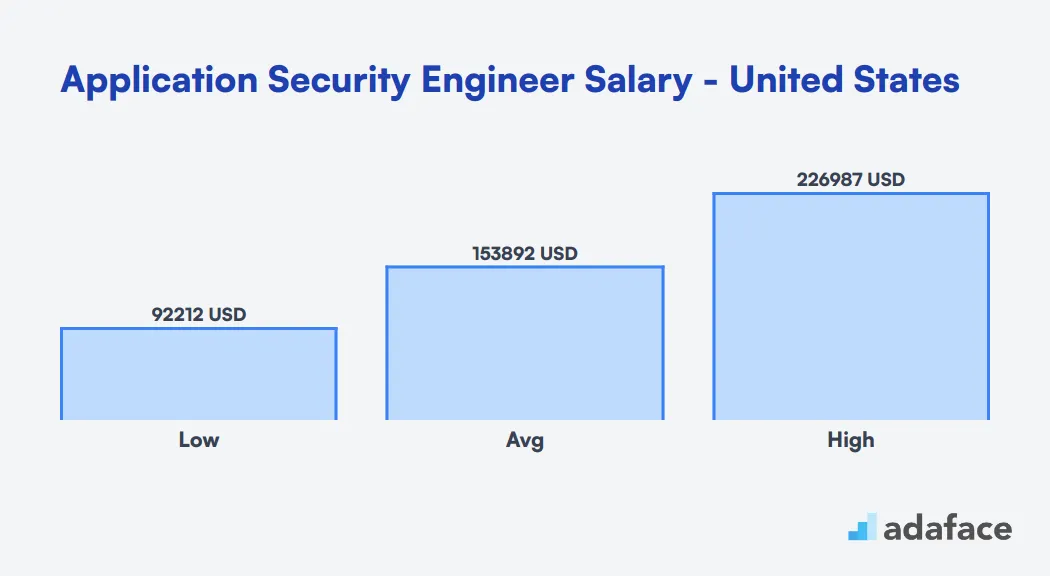Hiring an Application Security Engineer is a critical task for any organization aiming to fortify its digital defenses. As cyber threats evolve, companies often struggle to find the right talent who can blend technical expertise with security acumen. The challenge lies not just in identifying candidates with the right skills, but also in assessing their ability to adapt to your organization's unique security landscape.
This comprehensive guide will walk you through the process of hiring an Application Security Engineer, from understanding the role to conducting effective interviews. We'll cover key skills to look for, provide tips on crafting job descriptions, and offer insights on screening candidates. For a deeper dive into the technical aspects, check out our Cyber Security Test to evaluate potential candidates.
Table of contents
Why Hire an Application Security Engineer?
Application security engineers are key to protecting your organization's software from vulnerabilities and threats. They ensure that your applications are designed, developed, and maintained with security in mind from the ground up.
To determine if you need an application security engineer, consider these questions:
- Are you developing custom software or web applications?
- Do you handle sensitive customer data or financial transactions?
- Have you experienced security breaches or data leaks in the past?
If you answered yes to any of these, it's time to consider hiring an application security engineer. For smaller projects or temporary needs, you might start with a consultant before bringing on a full-time expert.

What Does an Application Security Engineer Do?
An Application Security Engineer plays a key role in safeguarding software applications from security threats. They analyze software systems, identify vulnerabilities, and implement solutions to protect against potential cyber-attacks.
Day-to-day tasks for an Application Security Engineer include:
- Conducting security assessments and penetration tests on applications.
- Collaborating with development teams to integrate security measures into the software development lifecycle.
- Monitoring applications and systems for suspicious activity and responding to incidents.
- Staying updated with the latest security threats and trends to proactively secure applications.
For a detailed insight on the skills required for this role, refer to our skills required for application security engineer resource.
Application Security Engineer Hiring Process
Hiring an Application Security Engineer involves a structured yet straightforward process. As a recruiter or hiring manager, you'll be guiding this journey from start to finish.
- Craft a clear job description: Initiate the process by framing a precise job description. This will help in attracting the right talent. The Application Security Engineer job description can serve as a good reference.
- Screen resumes promptly: Expect resumes to start pouring in within a few days. Assess them for relevant skills and experience.
- Skill assessments: Once you shortlist candidates, evaluate their skills with tailored tests or case studies. This phase should ideally wrap up in about a week.
- Conduct interviews: Move forward with interviews for those who clear the initial testing. It's crucial to gauge their problem-solving capabilities and cultural fit during this stage.
- Finalize with offer stage: Identify the top candidate and proceed with the offer stage. Keeping the process efficient ensures you don't lose out on great talent.
Overall, the hiring journey takes around 1-2 months, contingent on the pace you maintain. Each step is important, and we will now explore them in more depth with helpful tips and resources.
Skills and qualifications to look for in an Application Security Engineer
Before you begin the hiring process, it's important to build a clear candidate profile for an Application Security Engineer tailored to your company’s needs. What's tricky is understanding that what's non-negotiable in one organization might be just a nice-to-have in another. Remember to distinguish between required and preferred skills, so you can attract the best fit for your team.
Required qualifications typically include a Bachelor's degree in Computer Science or Information Security and 3+ years of experience in application security or software development. Mastery in secure coding practices and familiarity with OWASP Top 10 vulnerabilities are a must. They should also have proficiency in at least one programming language, such as Java, Python, or C++, and experience with security testing tools.
Preferred criteria might include certifications like CISSP or CEH, and experience with cloud security technologies. Familiarity with DevSecOps practices and knowledge of compliance standards such as PCI DSS or HIPAA can be big pluses. Strong communication skills are also valuable for collaborating across teams.
| Required skills and qualifications | Preferred skills and qualifications |
|---|---|
| Bachelor's degree in Computer Science, Information Security, or related field | Relevant security certifications (e.g., CISSP, CEH, OSCP) |
| 3+ years of experience in application security or software development | Experience with cloud security and containerization technologies |
| Strong knowledge of secure coding practices and OWASP Top 10 vulnerabilities | Familiarity with DevSecOps practices and tools |
| Proficiency in at least one programming language (e.g., Java, Python, C++) | Knowledge of regulatory compliance standards (e.g., PCI DSS, HIPAA) |
| Experience with security testing tools and methodologies | Strong communication and collaboration skills |
How to Write an Application Security Engineer Job Description
Creating an effective job description is key to attracting top Application Security Engineer talent. Here are some tips to help you craft a compelling posting:
- Highlight key responsibilities: Clearly outline the role's main duties, such as conducting security assessments, implementing security measures, and collaborating with development teams.
- Balance technical skills with soft skills: List required technical skills like knowledge of secure coding practices and experience with security tools, but also emphasize soft skills such as communication and problem-solving.
- Showcase your company's security focus: Highlight your organization's commitment to security and any unique projects or technologies the candidate will work with.
- Include relevant certifications: Mention desired Application Security Engineer certifications like CISSP or CEH to attract qualified candidates.
Top Platforms to Hire Application Security Engineers
Now that we have a clear job description, it's time to list it on job platforms to attract the right candidates. Utilizing the right sites is crucial for sourcing qualified Application Security Engineers who can enhance your organization's security posture.
Ideal for recruiting full-time Application Security Engineers due to its professional networking focus and large user base.

Indeed
Great for listing full-time positions with a robust search engine and a vast database of job seekers.

Upwork
Best for hiring freelance Application Security Engineers for short-term projects or specific tasks.

Some excellent platforms to consider include LinkedIn for recruiting full-time engineers due to its professional networking focus, and Indeed, which boasts a vast database for job seekers. Other options like Upwork are great for finding freelancers, while FlexJobs is ideal for those looking for remote positions. These platforms can significantly streamline your hiring process.
Keywords to Look for in Application Security Engineer Resumes
Resume screening is a time-saver when hiring Application Security Engineers. It helps you quickly identify candidates with the right skills and experience before moving to interviews.

Focus on key technical terms and certifications. Look for programming languages like Java or Python, security tools such as Burp Suite or OWASP ZAP, and concepts like OWASP Top 10 vulnerabilities. Certifications like CISSP or CEH can also indicate a strong security background.
AI tools can streamline your resume screening process. You can use ChatGPT or similar AI to analyze resumes based on your specific criteria, saving time and ensuring consistency in your initial evaluations.
Here's a sample prompt for AI-assisted resume screening:
TASK: Screen resumes for Application Security Engineer role
INPUT: Resumes
OUTPUT: For each resume, provide:
- Name
- Matching keywords
- Score (out of 10)
- Shortlist recommendation (Yes/No/Maybe)
KEYWORDS:
- Security testing (SAST, DAST, Penetration Testing)
- Programming (Java, Python, C++)
- Security tools (Burp Suite, OWASP ZAP)
- Cloud security (AWS, Azure, Docker)
- Certifications (CISSP, CEH, OSCP)
- OWASP Top 10
- Secure SDLC
Recommended skills tests to screen Application Security Engineers
When hiring an Application Security Engineer, skills testing is a recommended step to ensure candidates possess the necessary expertise to protect your applications from threats. The right skills tests can provide insight into their technical abilities and help you make informed hiring decisions. Here are our top test recommendations:
Cyber Security Test: This test evaluates a candidate’s understanding of cybersecurity principles, which are vital for Application Security Engineers to safeguard applications against threats. Candidates are assessed on their knowledge of network security, cryptography, and common vulnerabilities.
Ethical Hacking Test: Knowing how hackers think is crucial for Application Security Engineers. The Ethical Hacking Test assesses skills related to penetration testing and vulnerability assessment, ensuring candidates can identify and mitigate security risks effectively.
Web Testing Online Test: Application Security Engineers must be proficient in testing web applications for security flaws. This test covers key concepts of web security, including XSS, SQL injection, and security misconfigurations, which are frequent targets of attacks.
Linux Online Test: Many applications run on Linux servers, and engineers need to manage and secure them. The Linux Online Test assesses skills in Linux administration and security practices, ensuring candidates can handle server-related security challenges.
Programming Tests: Solid programming skills are necessary for developing secure applications. Use Programming Tests to evaluate a candidate's ability to write secure code, which is fundamental for preventing application vulnerabilities.
Structuring Technical Interviews for Application Security Engineers
After candidates pass initial skills tests, it's time for technical interviews to assess their hard skills in depth. While skills tests help filter out unqualified applicants, technical interviews are key to identifying the best fit for your Application Security Engineer role. Let's look at some sample interview questions to evaluate candidates effectively.
Consider asking: 'How would you implement security in a CI/CD pipeline?', 'Explain the OWASP Top 10 and mitigation strategies', 'What's your approach to threat modeling?', 'How do you handle API security?', and 'Describe your experience with penetration testing'. These questions probe candidates' practical knowledge, problem-solving abilities, and real-world experience in application security, helping you gauge their suitability for the role.
What are the costs associated with hiring an Application Security Engineer?
Hiring an Application Security Engineer can vary significantly based on factors such as location, experience, and company size. In the United States, the average salary is approximately $153,892 per year, with entry-level salaries starting around $92,213 and experienced professionals earning upwards of $226,988. It's important to consider additional costs like benefits, bonuses, and recruitment fees when budgeting for this role.
Application Security Engineer salary United States
The average salary for an Application Security Engineer in the United States is approximately $153,892 per year. Salaries can range from around $92,213 on the lower end to $226,988 for highly experienced professionals. Cities like San Francisco and New York tend to offer higher compensation, with median salaries reaching $174,286 and $153,764 respectively. Keep in mind, these figures can vary based on experience, education, and the specific company's budget.

Hire the Best Application Security Engineers
Throughout this guide, we've explored the various aspects of hiring an Application Security Engineer. From understanding their critical role and the necessary qualifications, to crafting effective job descriptions and selecting the right platforms, we've aimed to equip you with the knowledge to make informed hiring decisions.
The key takeaway is the importance of using accurate job descriptions and targeted skills tests to ensure the right match. Implementing precise cyber security skills tests can significantly enhance your screening process, helping you identify candidates who truly meet your requirements. By focusing on these elements, you increase the likelihood of hiring a top-notch Application Security Engineer who can protect your organization's digital assets.
Cyber Security Assessment Test
FAQs
Key skills include proficiency in programming languages, understanding of web application security, knowledge of secure coding practices, familiarity with common vulnerabilities (OWASP Top 10), experience with security tools, and strong analytical and problem-solving abilities.
You can assess technical skills through coding challenges, security scenario discussions, and technical interviews. Additionally, using specialized assessment tools like our Penetration Testing Test can provide objective evaluations of candidates' abilities.
Include responsibilities such as conducting security assessments, implementing security measures, performing code reviews, and collaborating with development teams. Also, specify required qualifications, preferred certifications, and any industry-specific experience needed.
Look for candidates on specialized job boards, professional networking sites, security conferences, and through referrals from current employees. You can also engage with cybersecurity communities and forums to attract passive candidates.
Structure the process with an initial screening, followed by technical assessments, practical security challenges, and in-depth interviews covering both technical knowledge and soft skills. Consider including a panel interview with senior security team members.
Valuable certifications include CISSP (Certified Information Systems Security Professional), CEH (Certified Ethical Hacker), OSCP (Offensive Security Certified Professional), and CSSLP (Certified Secure Software Lifecycle Professional).
Assess cultural fit through behavioral interviews, team meet-and-greets, and scenarios that test collaboration skills. Look for candidates who demonstrate good communication abilities and a passion for continuous learning in the rapidly evolving field of cybersecurity.

40 min skill tests.
No trick questions.
Accurate shortlisting.
We make it easy for you to find the best candidates in your pipeline with a 40 min skills test.
Try for freeRelated posts
Free resources



